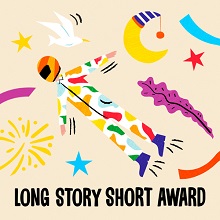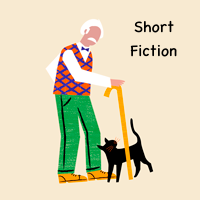Autumn's here—Happy New Year!
Not for me, that pallid substitute in January with its noisemakers and forgotten resolutions. My calendar resets annually with the opening of classroom doors, no
...
[+]
If only the car knew why her bike deserves a full lane, too. Jo wants to tell the grey Nissan about her leftover indigestion, heavy like an anchor pitting her to the bicycle seat.
Jo bikes to the end of Crawford Avenue and turns right onto Howard Street. As she stops at a red light, she feels last night’s carbs churn in her stomach. Yesterday’s Nutter Butter is why she wants to sweat as the sun rises. The mistake was thinking her gut would be immune to bloating. The mistake was thinking sleep would flatten the hill of her belly. Yes, even Jo’s skin knows: it would’ve been a good day if it weren’t for the Nutter Butter.
A block away, a street lamp flickers. She squints. Is that Lincoln Hall Elementary it’s trying to light? The school that housed her when she was 10 and weird? When recess was outside in the blue playground, Jo, instead of sprinting to the swings, chased other third graders and asked how they wanted to die. Some answered; others giggled and screamed—
“Jo!”
Jo freezes. There’s only one person with a voice that raspy, a throat that’s always coated with sugar or mucus or both.
“Jo, where are you going?”
The grey Nissan pulls up next to her. The 2016 Murano is patched with dead bugs, splotchy like a toddler’s face after crying. There hasn’t been a time, now that Jo thinks about it, when Aunt Ida’s car has been clean.
Aunt Ida pokes her head out of the window. “Can’t you hear? I honked.”
“Was that you?”
“Why haven’t you called?”
“School’s hard.”
“Don’t tell me you’re mad,” Aunt Ida raps her knuckles on the steering wheel.
Jo rolls her eyes. “The light’s green, Ida.”
A car behind Jo honks in agreement. As Jo pushes her bike forward, she sees the Nissan strolling beside her still, her only shadow in the summer dawn.
“Did you just call me Ida?” Aunt Ida frowns at Jo. “Does your mother know where you are right now?”
“You know I’m grounded.”
“Why are you grounded?”
“Because you hospitalized me!”
Aunt Ida brakes. “You passed out! I thought you were dying.”
Jo brakes too. Had it been so bad? All she remembers of that terrible day was her stomach, growling at her like a starved dog. Jo hadn’t eaten anything that day. This was the aftermath of her excessive Oreo consumption at the beginning of the week, a midnight craving that ventriloquized her hands and made her finish the Family Size box. To recover, on Tuesday, she slept for breakfast. Wednesday, she biked for lunch. Thursday, she ate ten almonds for dinner. By Friday, the world wouldn’t stop spinning. Jo waited with Aunt Ida at the Peterson Avenue bus stop and watched as the trees and roads and cars swirled into each other.
Jo didn’t remember fainting the way she often couldn’t remember falling asleep. The next thing she knew, she woke up to white fluorescents and a full stomach. At her bedside, Aunt Ida held her hand and explained why she was parked in a hospital hallway. There were things, though, that Jo didn’t know: the contort of Aunt Ida’s crying face, the curve of her spine as she kneeled over Jo’s awkward body. But Jo didn’t need to know her panic to beg for a favor. “Don’t tell my mom,” Jo had cried, “promise me you won’t.”
She did.
“How many calories are you burning?” Aunt Ida looks at Jo’s bike.
Jo stares back and, for a second, considers screaming. She thinks about grouping the air in her gut to heave out a yell, one that makes the sky split and the road crack and Aunt Ida disappear.
The car behind Jo honks again.
“Throw that bike in the backseat,” Aunt Ida says. “I’ll take you home.”
Aunt Ida has such sad eyes, Jo almost says yes. And then she remembers her mom, bursting through the hospital doors. The wailing.
The car behind them honks once more. Aunt Ida flips it off.
Jo remembers her plastic wristband crinkling like an empty Cheeto’s bag and the emergency room psychologist with purple eyeliner who loved to ask, “did you eat today?” As a joke, Jo shared her third-grade existential concerns. Her playground inquiries of death did not tickle the psychologist. Instead, the shrink wanted to know how Jo would respond to her own question now.
Death by cookie overload. Death by compulsive bicycling, perhaps.
Aunt Ida bangs the side of the grey Nissan. “Get in, Jo.”
Jo catches the sine of her gut in the Nissan’s opaque surface. “I think I’ll bike.”



